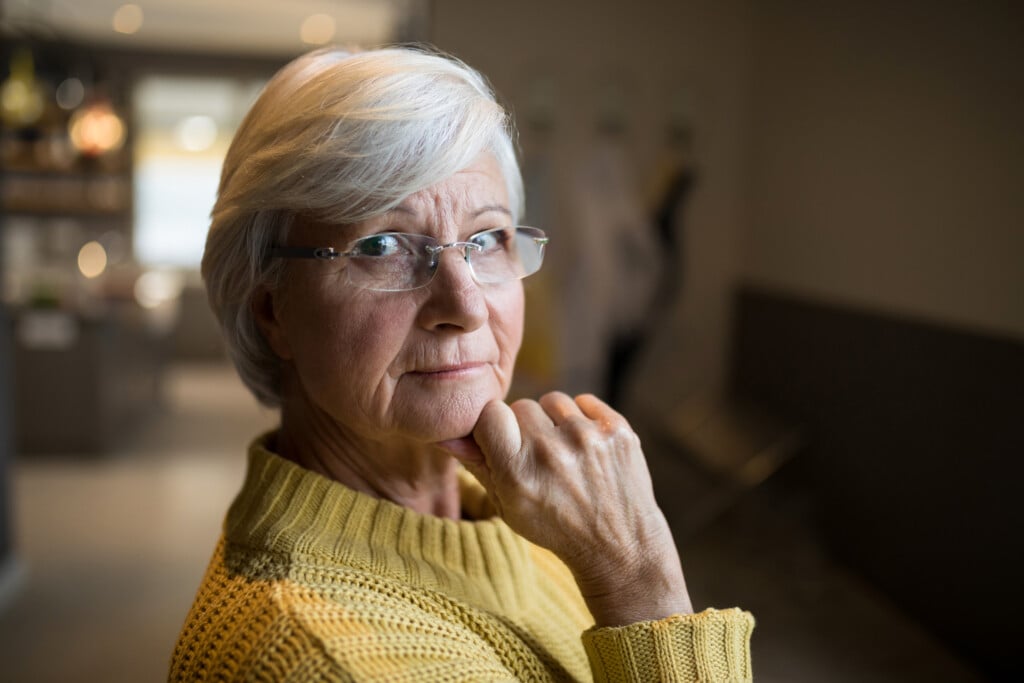If We Ditched Our Cell Phones, Would We Find Ourselves Again?
Recently, I noticed something different about my friend Katherine in a subtle but lovely way.
I have had this experience a few times in my life, where I notice an inspiring change in someone. I become aware that they are calmer, more integrated, more comfortable in their own skin, regardless of what is happening around them, and I think “I want more of that.” Although not quite the same, it reminds me of the well-loved scene from the 1989 comedy “When Harry Met Sally.” “I’ll have what she’s having.”
I am not referencing inborn constitution, such as a calm personality. I am referring to witnessing the process of someone elevating the balance of their life, and the palpable change that this increasing light creates in the field around that person, including their community. At the same time, I have seen many others on the opposite trajectory of slippage, where a person’s presence and humanity is losing ground.
The change in Katherine towards increased light gradually unfolded when she made a series of decisions about the role that her phone would play in her life.
Katherine Armitage: My Phone Decided To Leave Me
Over time, Katherine gradually chose to un-hijack her brain. She decided to reduce over-stimulation she attributed to her cell phone use, at the expense of other balancing choices, including quietude, time in nature, wild water swimming, presence, and pure joy.
This is her description about how she became aware of a de-evolutionary force in her life, and embraced gentle, transitional change, until she established a new set point in her habit field. She explained:
“I wanted to give up my cell phone for a very long time. I felt I really would like to be without it.
I ran my naturopathic retreat and B&B business for 10 years with a smart phone. Then a customer mentioned a digital detox. I realized that I’d never heard of this before, and I became more aware.
The cell phone was extremely useful, but I spent way too much time on it, for example talking while driving in my car, an unhealthy Faraday cage for a 3-5 hour trip, without question. I thought, ‘This is not good for my health.’
I started reducing the effects by turning my smart phone off when I wasn’t using it. Whenever anyone tried to call, they could not reach me, which could be frustrating for them and me. People would leave me a message, but my phone became an answering machine. I knew I would feel better if I got rid of the phone all together but always went back to it…
Then I swapped my smart phone for a 2G phone, but still had concern about verification for my internet banking, so I didn’t want to ditch it altogether. I still had the smart phone but only used it as a camera; it had no sim card. It is very difficult to text with a 2G flip phone.
Then I heard about a conference. The Electrosensitivity UK event was held in an environment with no EMF/RF stress, which is very rare — in a village hall in Somerset. I drove 2 ½ hours and stayed the night. I met my friend and we went for a walk. I put my phone in my back pocket, and then later realized I had dropped it. My friend said, “Don’t you want to go back?”
I said to my friend ‘You know what? I don’t mind. It decided to leave me.’ I was going to this EHS conference the next day; I was campaigning against 5G. It was divine timing. I knew I was not supposed to have this phone anymore. I said goodbye to it. It seemed I’d lost it accidentally on purpose. I’d been preparing and asking for it to go.
It has completely changed my life for the better. It is so interesting to see the differences now. I was always on the phone before. To not have the phone means that when I drive, I take in surroundings, and reflect.
My life is so different without a phone. I feel like I can do much more of what I choose to do in my day, not being interrupted. When I still had my phone, I was so busy I could hardly think. I was exhausted.
I see it as my karmic duty to spend time wisely, to triage, to decide what I need to do. It’s easier to focus on what is important and to pick up subtle energies without a phone.”
Technology Addiction Disrupts The Balance Of Neurotransmitter Activity
I suspect that if my friend Katherine were part of a modern medical study, shifts in her bio-chemistry caused by the choices she made to reduce her use of a wireless cell phone would be quantifiable. We have a good idea of what they would be.
Mark Hyman, MD explains in his book The UltraMind Solution: The Simple Way to Defeat Depression, Overcome Anxiety, and Sharpen Your Mind the two major categories of neurotransmitters: the kinds that excite and activate, and those that manifest calm and happiness.
The excitatory neurotransmitters dopamine and acetylcholine are like the gas pedal. They make you feel energized, excited, stimulated, and help you focus learn, and remember.
The so-called inhibitory neurotransmitters, serotonin and GABA, are likened to the brakes. They make one feel happy, relaxed, and peaceful.
In the article, How Dopamine Rollercoasters Dismantle Our Health and Lives, Vance Voetberg explains “While we chase the dopamine spike of satisfaction, our mental health pays the price…People can become addicted to social media in ways that trigger the dopamine dysfunction seen in substance abuse, according to research…Dopamine highs are often followed by crashes below baseline levels. As a result, the mind builds tolerance, requiring greater substance amounts to reproduce the high. Modern dopamine stimuli such as social media, processed foods, and TV breed addictive habits that fuel discontentment, anxiety, and depression.”
Technology, screen time, and cell phones are disrupting the healthy balance of stimulation, exertion and rest.
In simple terms, my friend Katherine peacefully and gradually backed herself out of the paradigm of unexamined cell phone use. Each small course correction removed her from the constant overstimulation of a dopamine drip, and created more space for other experiences of gratitude, peace, reflection, and contemplation, as well as deepening connection and presence.
When Katherine was late for a conference call because she lost track of time playing Frisbee, we all smiled. We all need more of that. She re-claimed the inherent sweetness of life.
This article originally appeared on safetechinternational.org and is reprinted with permission of the author.
Patricia Burke is a writer working with Safe Tech International, “seeking to end the implementation of technologies that are incompatible with health, wellbeing and life.” She has been advocating for safety in Massachusetts for over a decade, after becoming injured by smart meters in California.











